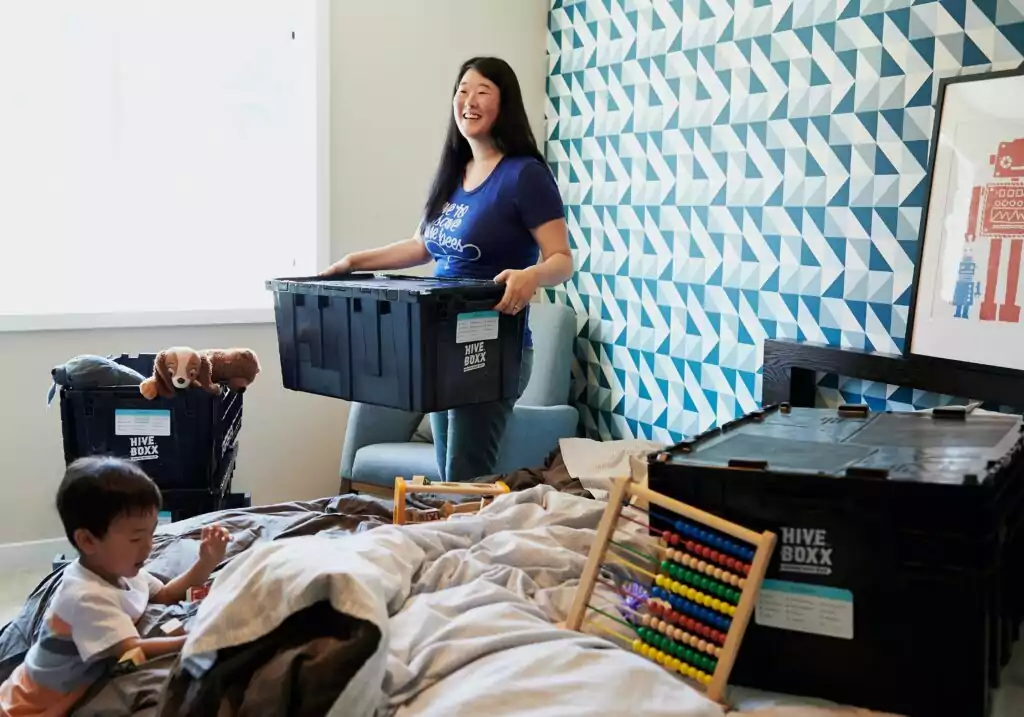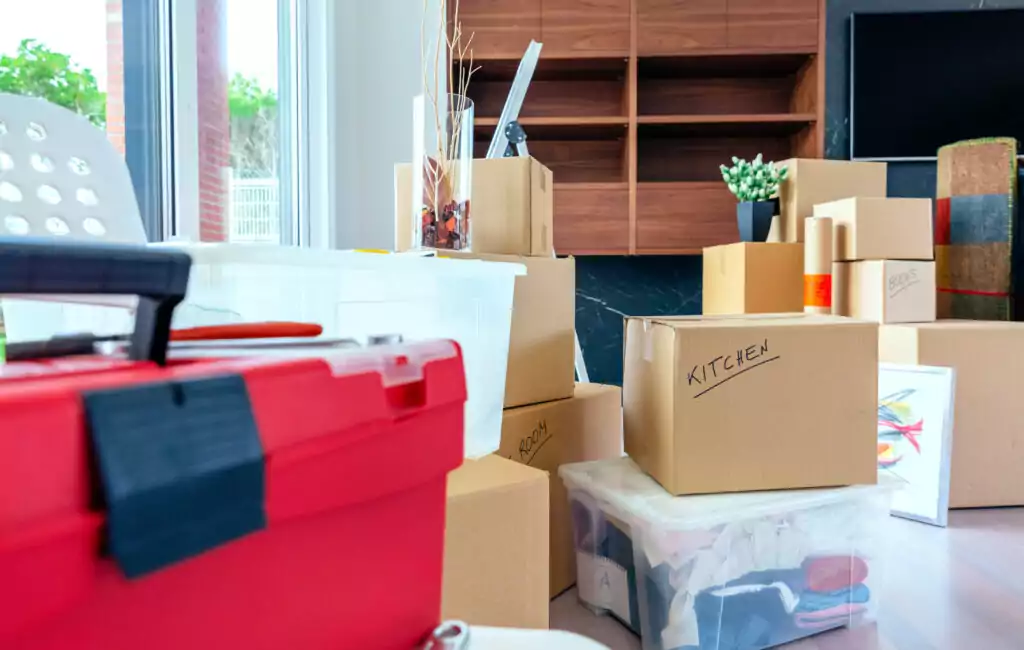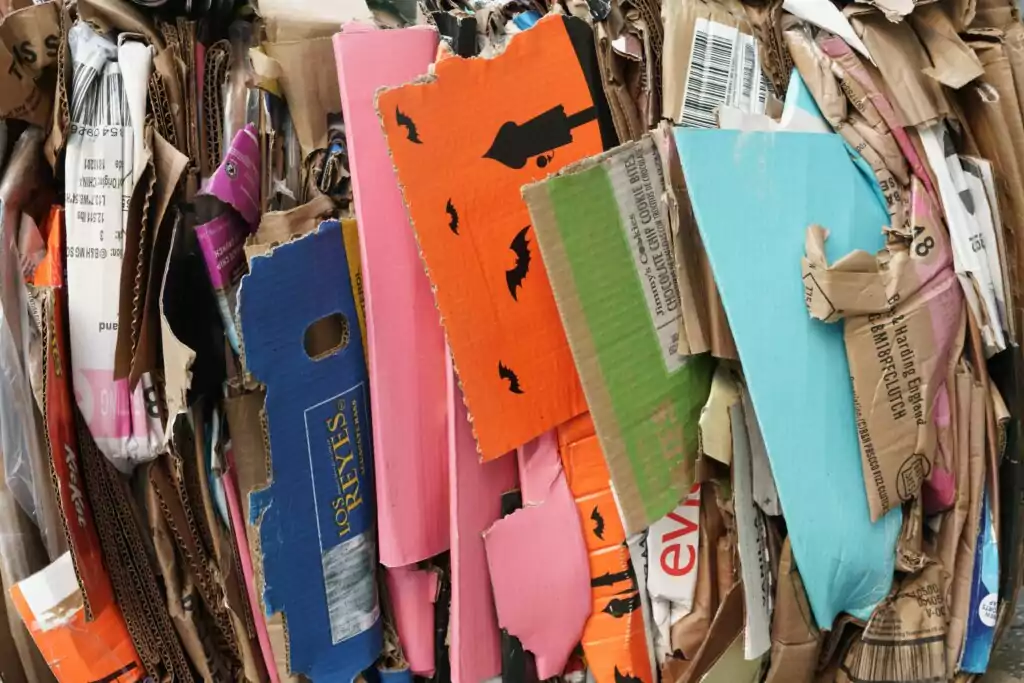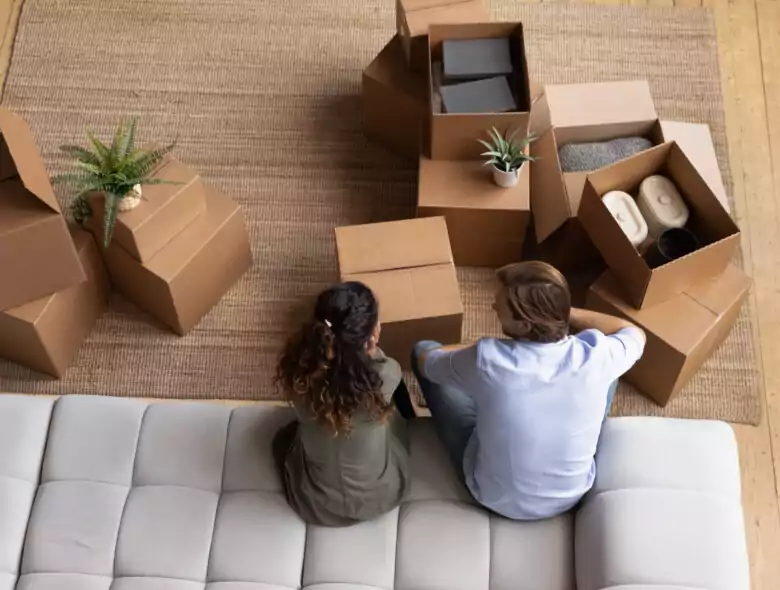American duct tape company, Duck Brand, found in a study they conducted that it takes people, on average, 182 days to fully unpack after a move – that’s around six months! Of course, while there is no pressure to unpack immediately after you move into a new place, dawdling on unpacking can lead to unnecessary stress and clutter so it’s best to tackle those boxes within a reasonable timeframe.
In Japan, peak moving season is usually between February and March as April is when the new school and business fiscal year starts. To avoid your unpacking duties clashing with your work or school obligations, here are some ways to make unpacking after moving a smooth(er) experience. If you’re moving for the first time or just antsy about the entire moving process in general, real estate organizations such as Village House provide move-in support. Contact them or check out their website for more details.
Unpacking Procedure

If possible, prior to moving your belongings into your new place, try to plan out when you get the keys so that you can do a thorough cleaning of the new apartment. Cleaning an apartment when it’s devoid of boxes littering the floors, hallway, and rooms while also blocking your way is much easier and will also be much quicker.
Once that’s done, and the movers have moved your belongings into your new abode, it’s time to prioritize what to unpack first. The key here is to divide and conquer – moving experts suggest prioritizing areas of the apartment essential for ensuring a good first night at your new place. Such areas usually include the kitchen, bathroom, and bedroom.
You’ll want to unpack some kitchen essentials such as silverware, dishwashing liquid, a sponge, some kitchenware like a pot and/or pan, and plates and glasses or cups so you can eat and drink while unpacking and settling in. To make it easier to find these items, pack them in a box labeled “Kitchen Essentials”.
Unpacking toiletries for the bathroom is also something that should be done when you move in because you’ll probably want to shower off the grit and grime of the move after a long day. Again, to ensure your essential bathroom products are easy to find, pack them together in a bag and keep them in your backpack like you would if you were going traveling.
Lastly, tackling the bedroom should be at the top of your unpacking list because you’re going to need somewhere to sleep that first night. Setting up your sleeping quarters can be quick depending on what kind of bedding you prefer or have – if you’re using a futon, then all you need to do is to unpack it from its case at the end of the day, set it up where you so desire and voila. However, if you have a bed frame and mattress to contend with, you’ll either have to assemble the bed frame if the movers haven’t already done it, put the mattress on, and then find linens for your new bed. Putting all your bedding and linens in one carefully labeled box will make this process easier.
Duration
Depending on whether you’re moving as a single individual, a couple, or a family, the duration of your unpacking will differ. Obviously, if you’re moving alone, and are a bit of a minimalist, then procrastination aside, you should be able to unpack within a week or two.
If moving as a couple, you’ll have to communicate with each other on where things should and need to go, what the layout of this and that room should look like, etc. Once that’s done and you’ve both agreed on what needs to be done, unpacking can go quickly and efficiently if you work in tandem.
If moving as a family with children, you may have to assign a schedule and deadline to ensure that the kids unpack within a certain timeframe. If you’re a family with older children and teenagers, they may also help move the unpacking process along by helping to unpack various parts of the house or apartment alongside their own bedrooms.
Of course, if you go with a moving service that also offers an unpacking option then you might just be able to be completely unpacked and moved in within a day or two!
Open Boxes One by One

It may be tempting to open multiple boxes at once, especially if you’re trying to find something specific but moving experts advise against this. Instead, open one box at a time and unpack the items in that box only. When it’s empty, disassemble the box, flatten it, and put it aside before moving onto a new box to open and unpack. This procedure will be made easier if you’ve carefully planned how you packed your belongings prior to moving. Check the labels on the boxes and make sure they’re in the correct room of the house or apartment before opening it to minimize having to carry potentially heavy items to another part of your accommodation.
Don’t Delay It
Procrastination never did anybody any favors and while it might be enticing to take extended breaks, especially if you’ve had a particularly difficult move, delaying the unpacking process will just result in a messy house or apartment. It will also cause you unnecessary stress, confusion, and anxiety as you scramble about trying to find your favorite jacket or work folder. Try giving yourself a schedule and a deadline and adhering to it. Unpack one room at a time so you don’t get overwhelmed. If you’re moving as a couple or family, assign each person in the household their own unpacking duties and goals for optimal efficiency.
How to Dispose of Cardboard Boxes

Japan’s trash sorting rules are infamous for being overly complex, to the point where you’ll be handed a booklet on how to sort through and dispose of your waste at city hall when you go to register your new address.
Use the booklet as a guide on how to dispose of cardboard boxes. The general rule of thumb for disposing of such items is to flatten and fold them before stacking the flattened and folded boxes on top of the other to make a pile. To ensure easier collection, tie the pile together with rope or string, which can be cheaply bought at any 100-yen shop. When that’s done, check the days on your neighborhood’s trash schedule to see when they collect cardboard boxes and either put aside the tied-up stack until you can leave it out on the side of the road, or bring it down to your apartment’s trash sorting room. Real Estate Organizations such as a Village House will help with such admin matters so feel free to ask their representative about how trash is sorted, disposed of, and collected when viewing one of their rental properties.
Related articles:
- Help! Which Moving Company Should I Choose?
- Stress-Free Moving: Essential Tips for Packing Like a Pro!
- Starting Fresh: All the Necessities You Need for Your New Home
- Help! Which Moving Company Should I Choose?
- The Quintessential Moving Day Guide



